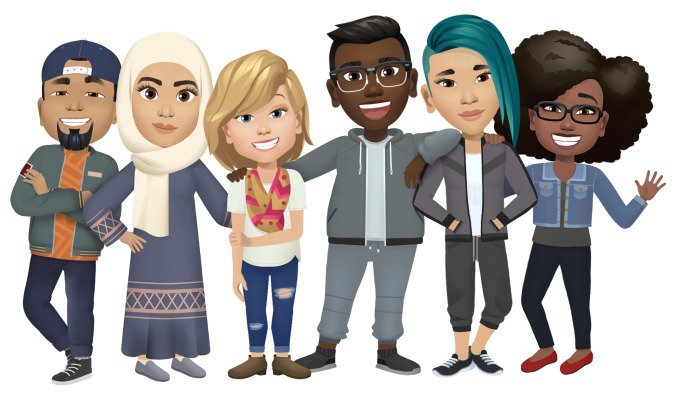Facebook Avatars Arrive Fashionably Late To The Bitmoji Party
Ever since the creation of emojis, humans have found a new way to communicate with each other pictorially. Emojis gave way to stickers and stickers gave way to the rebirth of animated GIFs but all of these formats, while expressive, are too generic to be personal. Then along came Bitmoji, which was snapped up by Snapchat in 2016, giving way to personalized avatars that later gave way to thinks like Animojis and AR Emojis. Now Facebook has finally arrived at the party three years later with Avatar, just in time to convince today's young generation that it's still hip and trendy.
Originally designed for college students, Facebook exploded to become "that thing kids use". It was eventually supplanted by the likes of Instagram (which Facebook acquired) and Snapchat (which Facebook fears) as the social network of choice by some youngsters. And thanks to recent scandals, Facebook's image has become even more "grown-up", filled with issues that only adults worry about.
In that context, Facebook Avatar's terribly late arrival is almost like a Hail Mary to get back into the good graces of younger users. Just note the current lack of options to represent an older demographic. To be fair, Facebook says that's still coming and the feature is still in development. Then again, it has been in development for the past year or so.

What Facebook Avatars lacks in features and depth it makes up for in diversity and ease of use. One of the supposed reasons for Facebook Avatar's late arrival was because it made sure it will have enough options to represent as many classes of people as possible. Except old classes of people. It also tried to make sure that the process of making a 2D representation of yourself will be as easy as possible.
While you will be able to see Facebook Avatars popup in Facebook News Feed comments and Messenger chats, only users in Australia can actually create their Avatars. The range of expressions and emotions that the Avatars can take will naturally grow over time, as will their representations, hopefully. And don't be surprised if, in the future, some form of monetization creeps into the platform. Facebook hasn't thought about it yet but, since it's Facebook, it's only a matter of time.
